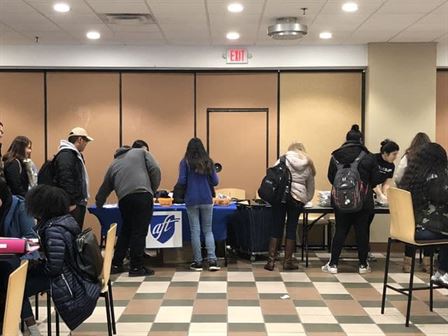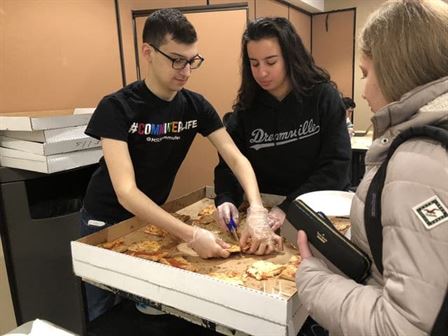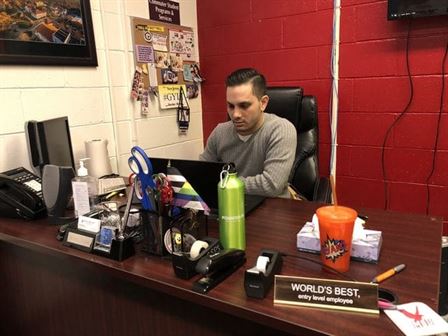In the middle of the Student Center next to the elevator lies the Office of Commuter Life. Its door is hard to see among the students swarming into the cafeteria hungry for Panda Express and California Tortilla. This hidden haven is where all of the magic behind the events geared toward commuters happens.
One of the most widely known facts about Montclair State University is that most of its student population is made up of commuters – over 75 percent to be more specific. With a percentage that large, it makes sense that the university has struggled in the past to get those students involved.
That’s where Antonio Talamo comes in. About a year and a half ago, he became the coordinator of Commuter Life, making it his mission to revive the previously inactive office and bridge the gap between residents and commuters.
As a former commuter student himself, Talamo aims to be the person that any commuter can go to with questions or concerns. It’s a big task considering the size of Montclair State, but he enjoys it because it speaks to him “spiritually.”
“We know that commuters put as much effort into their academics as residents do,” Talamo said. “Research shows it across the board. But there is a difference between extracurricular activities when it comes to residents. They tend to do [them] more than commuters.”
One day he might be going to meetings, setting up for events and printing out flyers, while the next day he might be listening to the six commuter students sitting in his office talk about their struggles. From simple conversations like those, popular campus events are born.

Students line up to get free pizza, wings and mozzarella sticks at Commuter Happy Hour. Amina Abdelrahman | The Montclarion
It was during one of those office conversations that Talamo realized that commuters weren’t staying on campus because they needed to eat lunch or dinner. Now, many of the programs and events offer free food so the students don’t have to leave campus between classes and events.
Some of the events that Talamo puts on through his office include biweekly Commuter Happy Hours, First Friday events in partnership with Weekends at Montclair, and Commuter Life Appreciation Week, which is a week filled with freebies and events planned with commuters in mind.
Through partnerships and co-sponsoring, the Office of Commuter Life hopes to introduce commuters to the various organizations and extracurricular activities on campus available to every student.
“We use our platform to encourage other people across campus to co-sponsor our events,” Talamo said. “This office is not about the students coming to our events. That’s wonderful, but they function as a way for us to introduce [them to] other people.”
Ideally, he wants commuters to organically build friendships with residents. He says that going out to an event, waiting in line and chatting with the person next to you can be the start of great relationships.
“We know people who have met their best friends at some of our events,” Talamo said. “That’s what we want, but we need to create a space that allows for that.”
Most recently, he has put on a Build-A-Buddy event, part of February’s First Friday programming, that attracted about 300 students to the Rathskeller to make their own stuffed animals. The latest Commuter Happy Hour gave away free pizza, wings and mozzarella sticks to the hungry students lined up out the door.
Many of these events would not happen without the help of Talamo’s supporting staff.
Monica Morgan, a junior communication studies transfer student, has not only adjusted to commuter life by working there, but she also continues to gain valuable experience in social media and event planning.
“The way Antonio runs the office, he believes in flat leadership a lot,” Morgan said. “So if we have an idea, we’re allowed to express it and just run with it.”
Morgan used this flexibility to her advantage by planning her own event last semester called A Commuter’s Worst Nightmare. At the event students wore costumes, stuffed zombie bears and won prizes.
With the help of Morgan and Bobby Serrani, the graduate coordinator who Talamo said could do his job if he left, the Office of Commuter Life has had tremendous success so far. Just one year after Talamo started, there has already been an 11 percent increase in commuter involvement.




